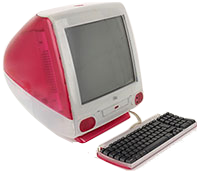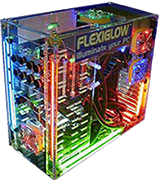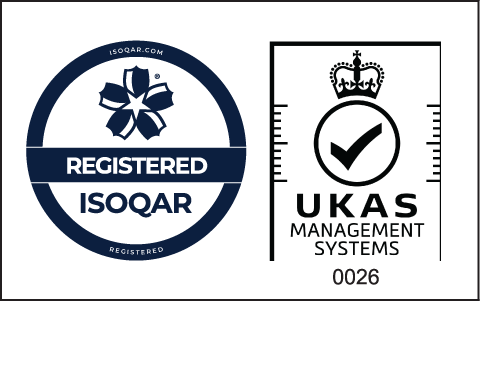Features from Meantime IT
10 years in IT
If a week is a long time in politics, ten years in IT should be measured in light years.
That’s how long Meantime’s been creating bespoke software for our clients, and plenty’s changed. This time last decade, Apple had just released the world’s thinnest desktop computer, the iMac G5. But at two inches thick, they weren’t really trying very hard because these days no serious Mac lover would be seen in public with anything over 5mm .
Obviously, there have been disappointments. Science has mere months to fine tune the hover boards we’re all waiting for , and has anyone noticed any T-800 cyborgs saving us all from certain death lately? No, didn’t think so. (Although the whole morphing liquid metal thing the T-1000 had going on is coming on leaps and bounds.)
At Meantime, we’ve developed massively over the last ten years, both individually and collectively. The business started operating from a spare bedroom, now we have a spacious open-plan office overlooking the River Kent. Each member of our team has progressed too; we may not have the hover boards, but we’ve certainly come a very long way.
Science isn’t weird enough for systems analyst Martin
“In 2004 I was a business/systems analyst for a national insurance agency, based at their head office in Manchester. The work I did there was my first real exposure to the development of web-based back-office systems. It was quite a leap for them too, considering what they’d been using previously, and I had to drag their testing approach out of the dark ages! That company’s setup was that everyone had what was effectively a ‘dumb’ client with a 15-inch monitor. The client machines were linked to a Citrix server farm which had a strict configuration of enterprise-level software that everyone had to use. Does anyone have any idea why Martin’s disappointed this isn’t a thing? Anyone?
Does anyone have any idea why Martin’s disappointed this isn’t a thing? Anyone?“I’m disappointed by the way that our online data and behaviour is being captured, stored, and used for all sorts of purposes without our knowledge. The T&Cs and ‘privacy policies’ of numerous sites are shrouded in such vagaries and legalese that you’ll never be able to prevent them from doing it. Hence why I refuse to be on any social networking sites!
“Biggest disappointment in IT? That the results suggested by the movie ‘Weird Science’ are still pure fiction…”
Browsers remain designer Lou’s bugbear
 “Ten years ago I was with a company called Real Solutions in Manchester designing websites and web applications. The role was pretty similar to what I do here at Meantime, but the equipment I used in the office was an awful, beige tower with a monitor the size of a small car. At home, though, I had my lovely red iMac, my pride and joy .
“Ten years ago I was with a company called Real Solutions in Manchester designing websites and web applications. The role was pretty similar to what I do here at Meantime, but the equipment I used in the office was an awful, beige tower with a monitor the size of a small car. At home, though, I had my lovely red iMac, my pride and joy .
“The biggest development over the last 10 years has to be smart phones and tablets. When the iPad came out I remember thinking it would never catch on; I thought it looked like a big, silly phone and wasn’t portable enough. I’m happy to admit getting that one wrong. What really disappoints me, though, is the complete lack of browser compatibility. I thought that once IE6 was gone our lives would be much improved, but now with mobile browsers added into the mix we really are no better off than before. If anything, it’s worse!”
Responsive design will never get old for developer Jack
“In 2004 I was in Year 7 at Cartmel C of E School. IT was compulsory; that was my first real experience of ‘computers.’ From what I can remember, the school IT equipment was fairly new. Don’t ask what it was though, all I cared about back then was food and football. “It’s been around for some time, but responsive design still manages to excite me. One site, displaying on multiple devices, adapting to the screen size and looking good no matter what you view it on. That’s pretty clever. We can do that, but we still can’t have a global standard for WWC and browsers. That disappoints me.”
“It’s been around for some time, but responsive design still manages to excite me. One site, displaying on multiple devices, adapting to the screen size and looking good no matter what you view it on. That’s pretty clever. We can do that, but we still can’t have a global standard for WWC and browsers. That disappoints me.”
Technical director Steve drove a flash monitor
“Ten years ago I was working for a conferencing and events company that did events specifically for public sector. I’d just finished writing the main thrust of the system that did barcode scanning of the delegates as they went around the event and it was time for a change!“At the time, I was working on a gigantic tower PC that had what I thought was a colossal processer and RAM; turns out it’s less powerful than my current phone. I was very ‘posh’ and had twin monitors – they were those HUGE box-type ones. My main monitor was 19” and therefore the size of a small family hatchback .
“Mobile has changed everything, from where people work to how they work. We’re always connected and also more demanding of technology because of it – We want to be able to do everything while on the move, and do it quickly and simply. Ten years ago you had to be in front of your PC and you were lucky if you had broadband. We think broadband’s been around for ages, but not so long ago people couldn’t make phone calls in their house while they were surfing the web as they were on dial-up!
“Broadband is also the biggest disappointment, in my opinion. We should all have access to super-fast, high capacity communication mediums by now. We don’t. The UK by 2017 will be behind South Korea and Finland, even with all this money spent, in terms of both speed and coverage.
“Obviously I would have liked to be able to teleport or freeze time as well.”
Tick tock, science, speed things up a bit for office manager Hannelie
Ten years ago, my youngest was just born. I vividly remember feeding her while sat at my desk working on the website of one of our first clients. Working with a small baby and a toddler, I wasn’t really very mobile, which is lucky as I’d have needed a wheelbarrow to take my HUGE Toshiba laptop anywhere. Cloud computing has certainly changed the way I work. I used to take files of paper home from the office, then it was files on a pen drive, now I can access everything I need from any device, anywhere in the world. I’m keeping an eye on 3-d printing too - it’s not done anything for me yet, but maybe one day… Also, how is time travel not a thing yet?”Developer Paul is happy with his lot
 “In 2004 I was a pub manager in Morecambe as well as a freelance web developer - I didn’t sleep a lot! I was working on an Apple Powerbook G4 and a pimped up Linux machine with a transparent case fitted with neon lights and spinny things!
“In 2004 I was a pub manager in Morecambe as well as a freelance web developer - I didn’t sleep a lot! I was working on an Apple Powerbook G4 and a pimped up Linux machine with a transparent case fitted with neon lights and spinny things!
“I think that mobile and tablets represent a real leap in terms of development. I’m not sure it’s the biggest development of the last decade, but it has certainly moved things along considerably. I don’t think I have anything to be disappointed about when it comes to IT. The world was a different place 10, 15, 20 years ago and I think the web has done a lot to revolutionise attitudes. There is still a lot of change that hasn’t happened yet though. But I’m hopeful.”
Ronald’s vision for a clearer future is still a long way off
“Ten years ago I was still living in the Netherlands, working for a young start-up company developing software for a high street travel agency. I was working on a Pentium 3 1Ghz laptop with a high resolution 1400x1050 screen – at the time, 1024x768 was standard. Isn’t it amazing we’re only starting to see higher resolution screens now?“With regard to progress, I’m glad to see energy efficiency is finally becoming the norm, with portable devices and data centres (which have massive issues with heat) the driving factors. BUT, the industry is seriously rubbish at adopting higher resolution displays . I’ve always worked on the highest resolution screens available at the time, as clarity and desktop space allow a more efficient workflow. It also makes on screen reading more pleasant, so not so much need to print everything, like some people do.
“My personal laptop, in theory, should drive a 4K ultra HD screen using its HDMI port, but the implementation is incomplete or broken, so won’t go above normal HD… All to save 20 pence production costs on a £1000 laptop.”
And finally, managing director Fenner sums up a decade in IT
“Ten years ago I was in the final month of my contracting career, finishing off a project for JPMorganChase in New York. Earlier in the year I'd been commissioned to deliver Meantime's first substantial piece of work, which meant I could take this small hobby company into the real world. I'd recently hired Steve and we were working together remotely; the start of a long and enjoyable working relationship. My youngest daughter had been born a couple of months before, so it was quite a step to move from the relatively secure income of working freelance to running my own business.“I was working with Oracle on a server network, which was an exciting change from the mainframes that I worked with for the greater part of my freelance career. I remember that we were still excited about having Windows XP. In an earlier job, though, I'd been responsible for the testing of RBSG's first 'thin client' Internet banking software and that was incredible experience, learning to work with a large, powerful web deployment.

